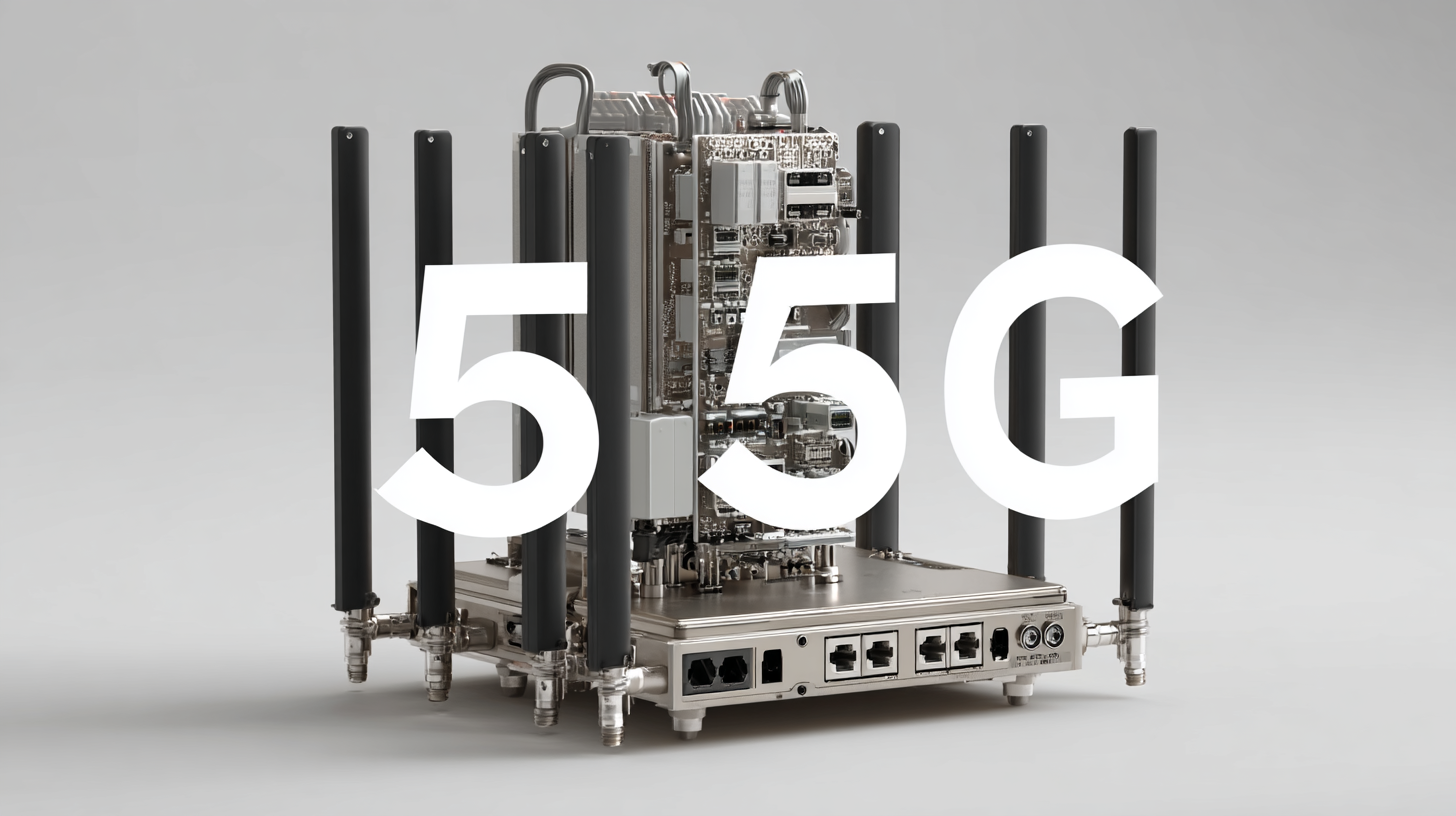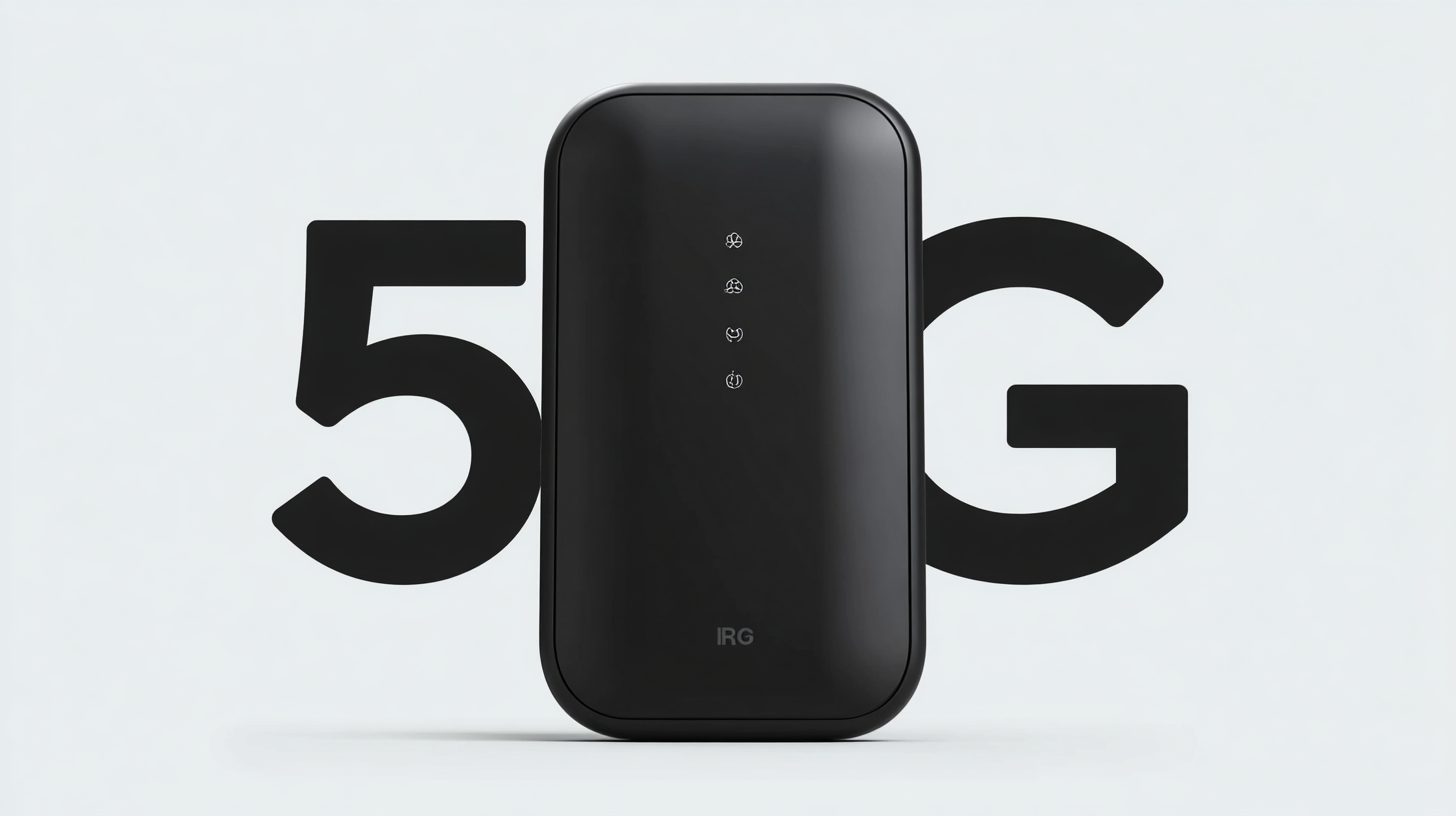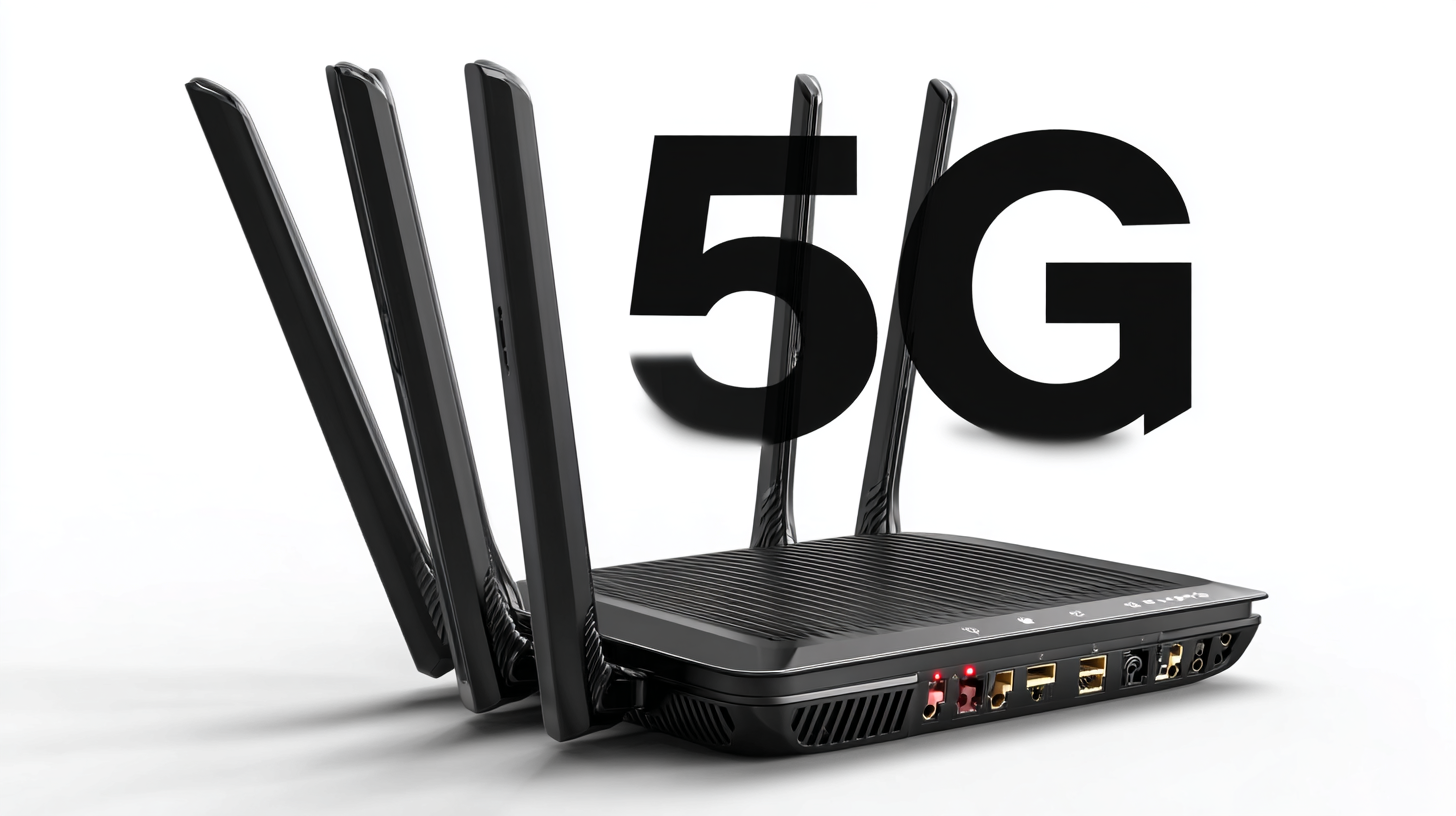As the world rapidly shifts towards a more connected future, the demand for fast and reliable internet access has never been greater. A report by the Global Mobile Suppliers Association (GSA) predicts that by 2025, there will be nearly 1.5 billion 5G subscribers globally, highlighting the urgent need for robust technology to support this transformation. Central to this evolution is the 5G router, which acts as a gateway to this next-generation network, providing lightning-fast speeds and low latency that significantly enhance user experiences across various applications, from streaming to gaming and smart home connectivity. With 5G technology expected to contribute $13.2 trillion to the global economy by 2035, understanding what to look for in the best 5G router is crucial for consumers and businesses alike. This guide will illuminate the key features and benefits that buyers worldwide should consider to make an informed decision in this exciting market.

When selecting the best 5G router, several key features should be prioritized to ensure optimal performance and reliability. Firstly, the router's frequency bands are crucial; a dual-band or tri-band router can leverage different frequencies to enhance speed and connectivity.
According to a report by the Global Mobile Suppliers Association (GSA), over 80% of 5G networks globally operate on both sub-6 GHz and millimeter-wave frequencies, enabling devices to maintain a stable connection while optimizing speed based on the environment.
Another significant aspect to consider is the router's total throughput capacity. Routers that support the latest Wi-Fi 6 technology can provide faster speeds and better performance in environments with multiple connected devices. A study published by the Wi-Fi Alliance indicated that Wi-Fi 6 can support up to four times the capacity of previous generations, making it ideal for homes and businesses with increasing IoT device densities. Additionally, features like Quality of Service (QoS) allow for prioritizing bandwidth allocation, ensuring that high-demand applications like gaming and streaming remain uninterrupted, which is crucial in a 5G era.
When choosing a 5G router, understanding the various 5G technologies and standards is crucial for making an informed decision. The primary technologies in play are Sub-6 GHz and mmWave. Sub-6 GHz operates on lower frequencies, providing broader coverage and better penetration through obstacles, making it ideal for urban and suburban environments. In contrast, mmWave offers ultra-fast speeds over short distances, perfect for high-density areas like stadiums or concert halls. However, its limited range means it may not be the best choice for all users, particularly those in rural areas.
Additionally, it's important to consider the different 5G standards, such as 5G New Radio (NR) and non-standalone (NSA) architectures. 5G NR is the global standard that enables faster speeds and reduced latency, while NSA allows existing 4G LTE infrastructure to support 5G services. This distinction can affect not only performance but also your router's compatibility, scalability, and overall longevity. By grasping these foundational differences, global buyers can better assess which router aligns with their specific needs and future-proof their connectivity solutions.
| Feature | Description | Importance |
|---|---|---|
| Support for Multiple 5G Bands | Allows for better coverage and compatibility with different network providers. | High |
| Wi-Fi 6 Support | Enhances speed and efficiency in device connections, particularly in high-density environments. | High |
| Ethernet Ports | Provides stable wired connections for devices that require high bandwidth. | Medium |
| Advanced Security Features | Includes firewall, VPN support, and security protocols to safeguard network privacy. | High |
| User-Friendly Interface | Simple setup and management through web interface or mobile app. | Medium |
| Beamforming Technology | Targets Wi-Fi signals directly to devices for improved speed and reliability. | High |
When choosing the best 5G router, performance metrics such as speed, range, and stability are paramount. As the demand for seamless internet connectivity grows, especially with the rise of smart home devices, discerning consumers must carefully evaluate their options. Recent testing highlighted that many routers fell short of performance standards, emphasizing the need to prioritize certain configurations when making a purchase.
Speed is often the most discussed metric, but equally important is the range a router covers. A high-speed router that lacks sufficient range will lead to dead zones in larger homes, undermining the overall user experience. Additionally, stability is critical; fluctuating connections can disrupt various devices, from tablets to smart appliances. Understanding the balance between these parameters will not only ensure you select a device capable of handling your current internet usage but also future-proof your network as technology continues to advance.

When considering the purchase of a 5G router, budgeting is crucial to ensure that you get the most value for your money. While it's tempting to go for the cheapest option, it is essential to weigh cost against the features that will provide long-term benefits. Look for routers that offer a good balance of speed, coverage, and reliability without breaking the bank. Investing a little more initially can save you from frequent replacements and maintenance costs down the road.
Tips: Always check for user reviews and performance ratings. A router might seem affordable, but if it lacks reliability, you may end up spending more on data overages or additional service fees. Also, consider future-proofing your purchase by choosing models that support the latest technology standards.
Additionally, analyze the total cost of ownership, which includes not only the purchase price but also any subscription fees, installation costs, and potential upgrades in the future. A seemingly cheap router might require costly add-ons or replacements sooner than a slightly pricier, more robust counterpart that can handle increased demand as your usage grows.
When selecting the best 5G router, one of the most critical aspects to consider is compatibility and future-proofing. As 5G technology continues to evolve, ensuring that your router can support advanced features like Wi-Fi 6 and beyond is crucial. Research indicates that routers designed with these capabilities will be more resilient to technological shifts, providing longevity for users looking to maximize their investment. A recent industry report noted that the global 5G router market is expected to grow at a CAGR of approximately 25% over the next five years, underscoring the demand for devices that can adapt to emerging technologies.

Moreover, the significance of future-proofing extends beyond 5G compatibility. The best routers will also support seamless integration with a range of devices, from IoT systems to gaming consoles, ensuring users can leverage their full potential. For instance, as the gaming landscape becomes more demanding, routers that excel in low latency and high bandwidth will position users to enjoy an uninterrupted experience. A study highlighted that gamers benefit from routers specifically optimized for gaming, further emphasizing the need for products built with forward compatibility in mind. Such foresight protects consumers from quickly becoming obsolete as new technologies surface.


